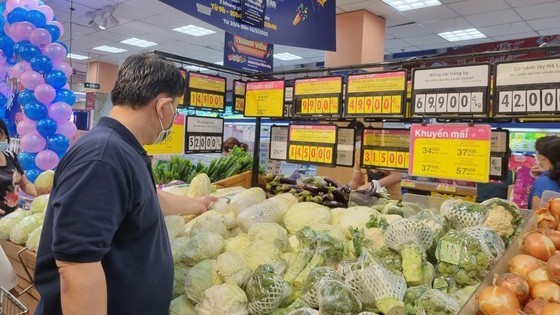 |
Vietnam determined to stimulate domestic demand |
Vietnam has an open economy - where goods and services are traded with other countries without rules or limits - so it is easily affected by fluctuations in the world market. In the first 6 months of 2023, the economies that are major export markets of Vietnam slowed down such as the US, EU, and Japan, so Vietnam's exports declined sharply. The decline in exports and investment leads to lower employment and income. When income decreases, domestic spending also decreases, affecting many trade and service industries.
From October 2022, the Vietnamese government aims at stables macro policy focusing on controlling inflation. Accordingly, credit limits were tightened and interest rates increased. At the same time, fiscal policy is operated in the direction of increasing revenue and reducing expenditure, resulting in a budget surplus in 2022.
However, from the beginning of April 2023 until now, the Vietnamese government is determined to stimulate domestic demand with the expectation of partially compensating for the decline in exports and foreign direct investment by accelerating strong disbursement of public investment projects, reducing fees, charges and value-added tax to stimulate domestic demand.
Next, the government has implemented the monetary expansion policy by expanding credit lines and reducing interest rates to provide more money supply for consumption and production. Thereby, it shows that the macro policy is aiming to support growth instead of the goal of keeping a stable economy as before.
Although the policy to support basic growth is quite clear, it has not had much impact. The ultimate goal of the policy to support growth is to offer more opportunities for the business community. When businesses have trading opportunities, they will create more jobs and income. When workers have jobs, spending in the economy will increase. This is not clear in practice.
Last but not least, the promotion of disbursement of public investment programs and projects is mainly focused on the implementation of construction works; thereby, creating more jobs for the building materials industry, construction enterprises, and service providers related to shipping and support services. However, other groups of industries that are being heavily affected do not yet have effective stimulus tools such as textiles, footwear, leather, wood, food processing, and processing and manufacturing industries.
The effect of increasing public spending is not only measured by the amount of money disbursed but also needs to take into account the business opportunities created for the country’s economy. Processing industries need to be stimulated by specific investment programs to create more opportunities for businesses.
Over the past time, support packages have been deployed in the context that the State is tightening the state governance discipline. Due to civil servants’ fear of making mistakes, the disbursement of support packages is slow. On the other hand, monetary policy is being expanded compared to the previous time, but it is very limited. Though the State Bank of Vietnam has required a reduction of many interest rates, the lending interest rate is still quite high compared to the normal period.
Additionally , because of ineffective fiscal policy, enterprises have not yet had more business opportunities, so they have not been able to calculate the efficiency when borrowing capital. Therefore, the current capital inflows are not being readily absorbed by the economy.
























